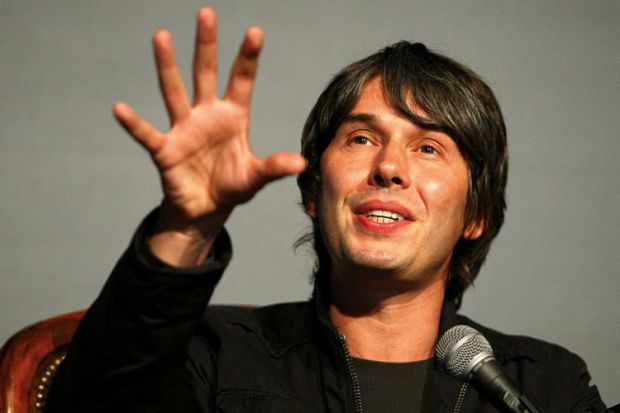Source: Rex
Broadcaster and physicist Brian Cox has said that science can be a “vehicle for the redistribution of opportunity in our society”.
The newly appointed Royal Society professor for public engagement in science at the University of Manchester said science needs to have a higher cultural and political profile if the UK is to capitalise on its world-leading position.
Professor Cox said that it was “strange” that the UK invests significantly less in scientific research than its major competitors.
The UK puts 1.8 per cent of GDP into research, compared with 2.7 per cent in the US, 2.8 per cent in Germany and 4 per cent in South Korea.
He blamed the disparity on the culture of science in Britain, saying that “science is not held in the same high regard” in the UK that it is in other countries.
In his new role, Professor Cox will look at how the Royal Society can help to bring science to life for teachers and students. He will work with partners across science and organisations such as the BBC.
Professor Cox said: “I want to help change the perception of science. I want to see our great cultural and scientific institutions – the universities, the learned societies, museums, schools, the BBC – work together to raise the cultural and political profile of science, research and education.
“I want to see our investment in science, and particularly in young scientists, rise to levels at or beyond our competitors. I passionately believe that science can be a vehicle for the redistribution of opportunity in our society as well as a driver for economic growth.”
Sir Paul Nurse, president of the Royal Society, said: “The UK is very good at science, but it is seen as something difficult and perhaps removed from ordinary people.
“Britain was built by science and engineering during the Industrial Revolution, and we need to rediscover that passion for innovation in all parts of society.”
Register to continue
Why register?
- Registration is free and only takes a moment
- Once registered, you can read 3 articles a month
- Sign up for our newsletter
Subscribe
Or subscribe for unlimited access to:
- Unlimited access to news, views, insights & reviews
- Digital editions
- Digital access to THE’s university and college rankings analysis
Already registered or a current subscriber? Login




